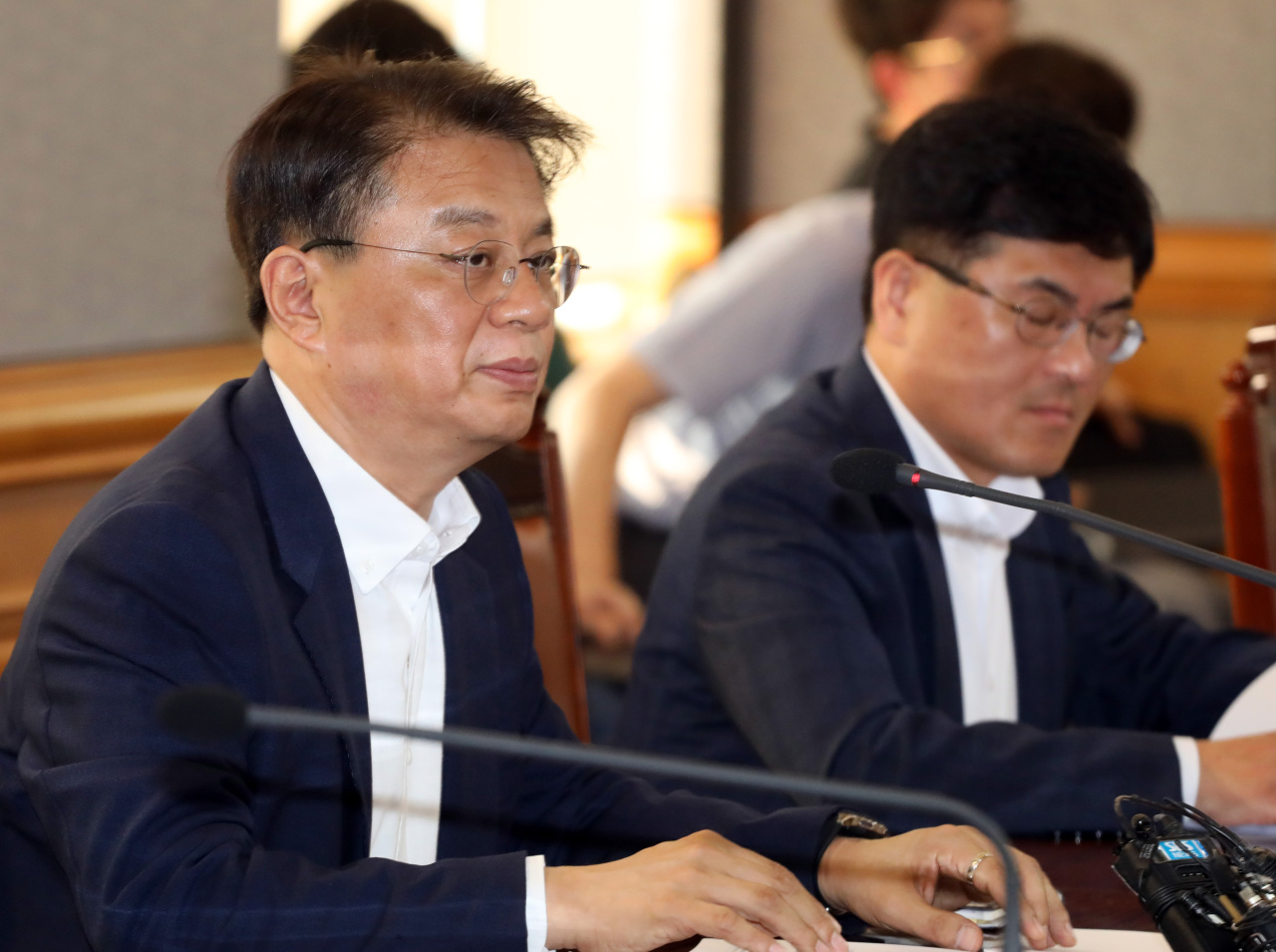As South Korea’s financial market continued to totter Tuesday after a “Black Monday,” experts observed that the key reason behind the current anxiety is the prolonged US-China trade conflict rather than the escalating feud with Japan.
Tense about the US-China situation and its anticipated leverage in the global financial markets, authorities here vowed to take stabilizing steps in case of increased volatility, signaling a possible intervention in the local foreign exchange market.
“We shall take swift and drastic measures to stabilize the financial markets under a contingency plan, in case of sharp volatility,” said Deputy Minister of Economy and Finance Bang Ki-sun in a meeting with related officials, alluding to a possible intervention in the FX market to prevent any excessive devaluation of the local currency.
 |
Deputy Minister of Economy and Finance Bang Ki-sun. (Yonhap) |
Seoul’s central bank also backed such scenario.
“The stability of the FX market is most important, as the aggravating US-China trade conflict is adding up to Japan’s export curbs,” Bank of Korea Gov. Lee Ju-yeol said in an urgent executive meeting.
“(The BOK) should focus on securing market liquidity, while closely cooperating with the government.”
The policymakers’ remarks were seen as reflecting Seoul’s determination to preemptively respond to the growing external risks. Seoul’s alleged interference in the FX market has been a longtime issue of dispute between Seoul and Washington.
On Monday, Korea’s financial markets faced a so-called “Black Monday,” with the value of the local currency slipping against the US dollar and the stock market indexes nosediving. The country’s secondary bourse Kosdaq dipped below the psychologically significant 600-point threshold, triggering a temporary trading halt in the market for the first time in more than three years.
Monday’s market turbulence was partly attributed to the Korea-Japan relations, which had aggravated over the weekend after Tokyo’s decision to exclude Seoul from its whitelist of preferential trade partners.
But as the currency devaluation and bearish market continued on Tuesday, market attention turned to the US-China conflict.
The Korean won closed at 1,215.5 won against the US dollar on Tuesday, while Kosdaq closed at 551.5, down 18.29 points or 3.21 percent from the previous day’s closing.
“Not only Korea but other key economies in Asia and Europe saw their stock markets decline (this week),” said an official of the market regulator Financial Services Commission.
“Considering such global situations, it can be deducted that the key reason was the US-China trade friction (rather than the bilateral Korea-Japan factor).”
The mounting tension between the world’s two largest economies entered a new phase after the US Treasury Department on Monday decided to label China as a currency manipulator, reversing its own previous stance. Washington’s move was made hours after US President Donald Trump accused Beijing of unfairly devaluing the yuan against the greenback.
“Japan’s economic retaliation can be an aggravating factor for Korea’s already struggling economy by boosting general anxiety in the market,” said Lee Kyung-min, analyst at Daeshin Securities.
“But to say that (the Japan factor) was the direct cause of the recent stock market crash would be jumping to conclusions.”
By Bae Hyun-jung (
tellme@heraldcorp.com)








![[Today’s K-pop] Blackpink’s Jennie, Lisa invited to Coachella as solo acts](http://res.heraldm.com/phpwas/restmb_idxmake.php?idx=644&simg=/content/image/2024/11/21/20241121050099_0.jpg)